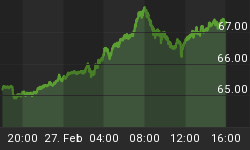This week, Team Obama took their dog and pony show on the road. Treasury Secretary Geithner went to China, Fed Chairman Bernanke to Capitol Hill, and the President himself began a Mideast tour in Saudi Arabia. This full-court press is not coincidental, and comes just as the federal government has begun unloading trillions of dollars in new Treasury obligations. The coordinated charm offensive is meant to assure the world-at-large that the United States can repay these obligations without destroying the dollar.
Given the renewed weakness in the dollar and the recent expressions of concern from China, our largest creditor, about the safety of its current holdings, this is no easy sell. Not only must our leaders convince holders of our debt not to sell what they already own, but to back up the truck and buy a whole lot more. The hope is that a dream team consisting of a charismatic politician, a skilled Wall Street banker with longstanding ties to China, and a respected Fed Chairman, can close the deal. However, no matter how slick the sales pitch, no amount of lipstick can dress up this pig.
The most obvious fear the trio must address is that oversized deficits will persist indefinitely. Reading from a carefully scripted rebuttal book, all three proclaim that as soon as the stimulus revives our economy, the government will take all necessary steps to reign in the deficits that result. Bernanke's testimony showcases this rhetorical shift. The Fed Chairman claimed that catastrophe has been averted and that the recession is nearly over. As a result, he advised Congress to now focus on debt management. How he expects them to do that was left unexamined.
Setting aside the fact that the recession is far from over and that the stimulus will actually weaken the economy in the long run, Bernanke's words were less a practical guide to Congress than a bromide for our foreign creditors. Meanwhile, Obama carefully peppers his speeches with calls for Americans to live within their means, to save more and spend less, to produce more and consume less. But nothing in the government's current fiscal or monetary policy will encourage such behavior. In fact, the objective of economic stimulus is to prevent such changes from taking place!
The laughter of Chinese students that greeted Secretary Geithner at Peking University shows how ridiculous this spiel sounds overseas. Actions speak louder than words, and the actions of the current Administration are deafening. Multi-trillion dollar deficits, bailouts, nationalizations, quantitative easing, and grandiose plans for government-provided healthcare, education, and alternative energy, render all their claims of future prudence meaningless. If our leaders will not make tough choices now, why should anyone believe they will do so later when those choices will be even harder to make?
Of course, it's not just major holders, like China and Saudi Arabia, that need to be convinced. Since the largest holders are already in so deep, they have the greatest short-term incentive to play ball. While throwing good money after bad is certainly a lousy investment strategy, it is politically expedient as it delays the need to officially acknowledge losses. The spin is designed to keep all the smaller, more nimble holders from dumping their Treasuries. The major holders can publicly pledge their commitment to Treasuries, while they privately planning their exit strategies, as long as they feel that the smaller holders won't spook the market by front-running their trades.
However, once the psychology turns, there is no way to stop the rush for the exits. Remember how quickly the secondary market for subprime mortgages collapsed? One day, investors were lining up to buy; the next day, the stuff couldn't be given away. Make no mistake about it, we are issuing subprime paper and no amount of political spin can alter that reality. Bogus credit ratings aside, I think the world already knows this and it's just a matter of time before someone admits it.
In the meantime, by continuing to lend, our creditors merely supply us the shovels to dig ourselves into an even deeper economic hole. Their credit enables our government to grow when it needs to shrink, finances bailouts of companies that should be allowed to fail, and enables a nation that should be saving and producing to continue borrowing and spending. As a result, the more money the world loans us, the less capable we are of paying it back. I really wish the world would stop doing us favors, as neither party can afford the consequences.
For an timely example, just look at California. With an unmanageable $20 billion deficit, California recently asked Washington for a bailout. With none immediately forthcoming, California was forced to make real and needed budget cuts. The hard choices, which will benefit California in the long run, would not have been made if federal funds had been committed. We all should be so lucky.
For a more in depth analysis of our financial problems and the inherent dangers they pose for the U.S. economy and U.S. dollar, read my just released book "The Little Book of Bull Moves in Bear Markets." Click here to order your copy now.
For a look back at how I predicted our current problems read my 2007 bestseller "Crash Proof: How to Profit from the Coming Economic Collapse." Click here to order a copy today.
More importantly, don't wait for reality to set in. Protect your wealth and preserve your purchasing power before it's too late. Discover the best way to buy gold at www.goldyoucanfold.com. Download Euro Pacific's free Special Report, "Peter Schiff's Five Favorite Investment Choices for the Next Five Years", at http://www.europac.net/reports.asp. Subscribe to our free, on-line investment newsletter, "The Global Investor" at http://www.europac.net/newsletter/newsletter.asp. And now watch the latest episode of Peter's new video blog, The Schiff Report, at http://www.europac.net/videoblog.asp.















